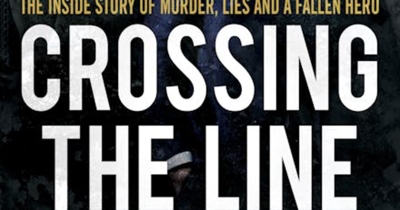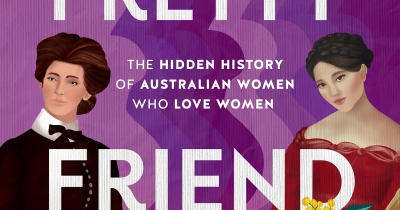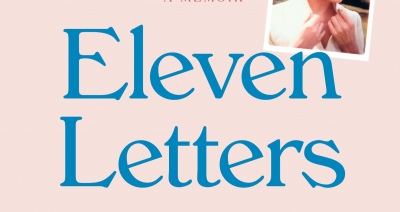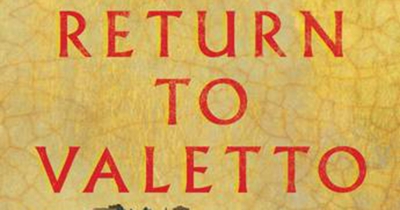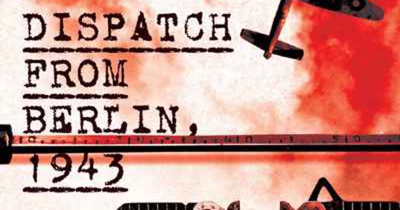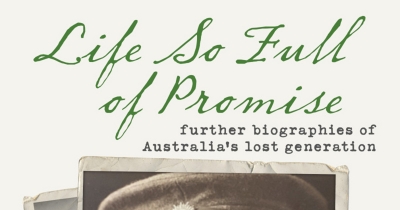Book of the Week
Sign up to Book of the Week and receive a new review to your inbox every Monday. Always free to read.
Recent:
When Justice Anthony Besanko released his judgment on the Ben Roberts-Smith versus Fairfax defamation case on 1 June, there was a lot more riding on his decision than the reputation of the principal parties and who would be landed with the eye-watering legal bills. Had the verdict gone against Fairfax, its reporters, Nick McKenzie, Chris Masters, and, to a lesser extent, Dan Oakes, would have struggled to return to or resurrect their careers. Defeat would have had a chilling effect on genuinely probing investigative reporting. In the face of such a decision, media organisations and editors around the country would have thought long and hard about letting their journalists pursue well-connected and well-resourced public figures, let alone defend their findings in court. But there was more at stake than that. The ‘defamation trial of the century’ was also widely, if inaccurately, regarded as a war crimes trial by proxy. While Roberts-Smith was not on trial for any of the crimes McKenzie and Masters alleged that he had committed or facilitated, had Justice Besanko found that the reporters had defamed him it would have made the pursuit of war crimes charges against Roberts-Smith more unlikely, or more difficult. The sense of relief at Besanko’s judgment was near universal. It not only emboldened the nation’s investigative reporters and their editors but also opened the way for the full and free pursuit of those members of Australia’s Special Forces credibly identified by the Brereton Report (2020) as having committed war crimes in Afghanistan.
... (read more)She and Her Pretty Friend is a collation of stories about lesbians in Australian history, ranging from the convict women of the ‘flash mob’ in Hobart’s Cascades prison to the lesbian separatists of the 1983 Pine Gap Peace Camp. Along the way, the reader meets a couple who farmed together in the 1840s, another couple who taught swimming and started the first women-only gym in Melbourne in 1879, as well as one of the first women doctors and her lifelong companion, who both served at the Scottish Women’s Hospital in Serbia in 1916. There are other figures, like poet Lesbia Harford and her muse, Katie Lush, or suffragist Cecilia John, who rode on horseback, dressed in suffrage colours, at the head of a march of more than 4,000 women and children (Danielle Scrimshsaw credits her with ‘queering the suffrage movement’). A chapter on Eve Langley and other ‘passing women’ prompts questions about whether they would have seen themselves as transgender, in today’s parlance.
... (read more)In an exuberant essay anticipating the publication of Eleven Letters to You, the critic and editor Helen Elliott describes the deep pleasure of working on the book: ‘The satisfaction of writing this book, of making it as good as I can has been unlike anything I’ve ever known. A necessary joy, the deepest new, an entirely selfish pleasure. A small and ravishing bomb inside me’ (The Monthly, May 2023). After this introduction, it was a relief to read the book and find that it doesn’t disappoint. The exuberance of the writing process filters through to the finished pages, populated with ostensibly ‘ordinary people’ – Elliott’s highly provisional term – who have made a deep impression on the writer.
... (read more)Wifedom is both an immovable and an irresistible book, an object and a force. Anna Funder, the author some years back of the bestselling Stasiland (2003), has written another great and important narrative of oppression and covert suppression, in this case of the first Mrs George Orwell, Eileen O’Shaughnessy (1905–45). The oppression and suppression are or were the work of her liberal and emancipatory husband – the nearest thing we have these days to a lay saint – and of his six (male) biographers. While nowhere a nasty book (what the Americans would call ‘mean’), it’s a kind of St George and the six dwarves. What’s strange is the persistence of the old bromides. In a recent Guardian review of D.J. Taylor’s Orwell: The new life (2023) – the biographer’s second go-around – Blake Morrison refers to ‘the practical Orwell’ and ‘the complaisant Eileen’. He wouldn’t have said either thing if he’d been able to read Funder’s new book.
... (read more)A few pages in to Return to Valetto, the narrator Hugh Fisher is on a train from Rome to Orvieto and is being eyed suspiciously by an elderly Italian woman, who can see the photograph of himself with his daughter that he is using as a bookmark:
... (read more)Family: Stories of belonging edited by Alaina Gougoulis and Ian See
The nuclear family has a bad literary rap. As we know from fiction and memoir, the traditional two-heterosexual-parents-and-biological-kids model, a structure that provides stability and nourishment for some, can also be a stricture, a disappointment, even a crucible of cruelty. The opening sentence of Anna Karenina notwithstanding, unhappiness is unhappiness; there are common experiences for the survivors of family difficulty, even when specifics differ.
... (read more)Dispatch from Berlin, 1943: The story of five journalists who risked everything by Anthony Cooper, with Thorsten Perl
Bomber Command operations cost about 3,500 Australian lives in World War II. This was more than five times the number of Australians who died in the Battle of Kokoda from July to November 1942. Yet the strategic bombing offensive over Germany has never held a comparable place in the national memory of war.
... (read more)Life So Full Of Promise: Further biographies of Australia’s lost generation by Ross McMullin
Just over a decade ago, Ross McMullin published Farewell, Dear People (2012), a magisterial biography of ten remarkable Australians killed in World War I. The book met with much acclaim, including the award of the Prime Minister’s Prize for Australian History in 2013. Life So Full of Promise, a sequel to this volume, provides three more biographies of men whose early lives suggested that they would have made extraordinary contributions to Australian public life, had they survived the war.
... (read more)Disconnect: Why we get pushed to extremes online and how to stop it by Jordan Guiao
Reading a book about online polarisation is a bit like reading a murder mystery novel where the murderer is revealed on page one. We all know it was social media, on our devices, with the trolls, in the bedroom. What we don’t know is the human cost of our newly fragmented online world: the lives destroyed, the families torn apart, the friends permanently estranged when someone falls down an online rabbit hole.
... (read more)The Australian photographer Frank Hurley, who accompanied Antarctic expeditions led by Douglas Mawson and Ernest Shackleton, proved to be an able diarist as well as a skilful and adventurous photographer. While Hurley participated in a number of expeditions – as well as serving as an official war photographer in both world wars – the late and much missed poet Jordie Albiston has drawn on Hurley’s diaries from Mawson’s sledging trip of November 1912 to January 1913 and Shackleton’s Imperial Trans-Antarctic Expedition of November 1914 to September 1916 for what has become her fourteenth and final poetry collection.
... (read more)

